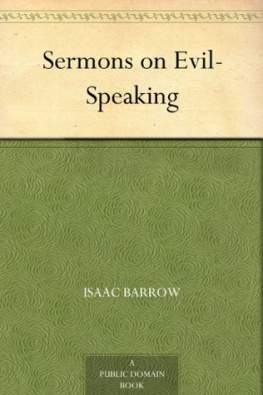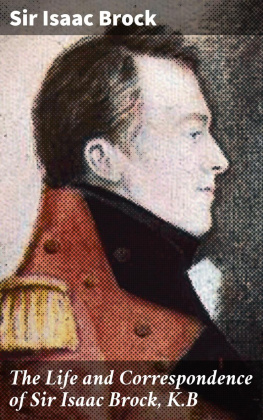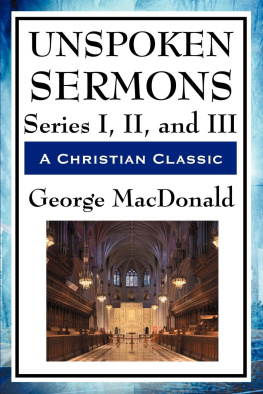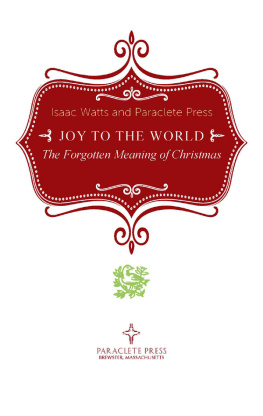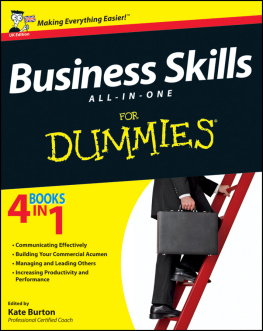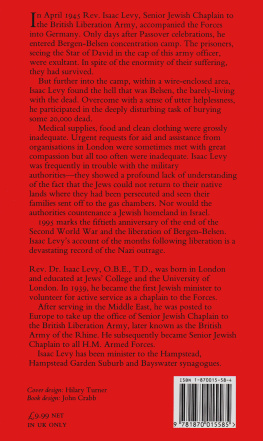Isaac Barrow - Sermons on Evil-Speaking
Here you can read online Isaac Barrow - Sermons on Evil-Speaking full text of the book (entire story) in english for free. Download pdf and epub, get meaning, cover and reviews about this ebook. publisher: Library of Alexandria, genre: Science. Description of the work, (preface) as well as reviews are available. Best literature library LitArk.com created for fans of good reading and offers a wide selection of genres:
Romance novel
Science fiction
Adventure
Detective
Science
History
Home and family
Prose
Art
Politics
Computer
Non-fiction
Religion
Business
Children
Humor
Choose a favorite category and find really read worthwhile books. Enjoy immersion in the world of imagination, feel the emotions of the characters or learn something new for yourself, make an fascinating discovery.
- Book:Sermons on Evil-Speaking
- Author:
- Publisher:Library of Alexandria
- Genre:
- Rating:4 / 5
- Favourites:Add to favourites
- Your mark:
- 80
- 1
- 2
- 3
- 4
- 5
Sermons on Evil-Speaking: summary, description and annotation
We offer to read an annotation, description, summary or preface (depends on what the author of the book "Sermons on Evil-Speaking" wrote himself). If you haven't found the necessary information about the book — write in the comments, we will try to find it.
Sermons on Evil-Speaking — read online for free the complete book (whole text) full work
Below is the text of the book, divided by pages. System saving the place of the last page read, allows you to conveniently read the book "Sermons on Evil-Speaking" online for free, without having to search again every time where you left off. Put a bookmark, and you can go to the page where you finished reading at any time.
Font size:
Interval:
Bookmark:
Edited by Henry Morley
This eBook is for the use of anyone anywhere at no cost and with
almost no restrictions whatsoever. You may copy it, give it away or
re-use it under the terms of the Project Gutenberg License included
with this eBook or online at www.gutenberg.org
Title: Sermons on Evil-Speaking
Author: Isaac Barrow
Release Date: November 25, 2003 [eBook #10274]
Language: English
Chatacter set encoding: US-ASCII
***START OF THE PROJECT GUTENBERG EBOOK SERMONS ON EVIL-SPEAKING***
This eBook was prepared by Les Bowler, St. Ives, Dorset.
BY ISAAC BARROW, D.D.
CONTENTS.
Introduction by Professor Henry Morley.
Against Foolish Talking and Jesting.
Against Rash and Vain Swearing.
Of Evil-speaking in General.
The Folly of Slander. Part 1.
The Folly of Slander. Part 2.
Isaac Barrow was born in London in 1630. His father was draper to the king. His mother died when he was four years old. He was named Isaac after an uncle, who died in 1680, Bishop of St. Asaph. Young Isaac Barrow was educated at the Charterhouse School, and at Felstead, before he went, in 1643, to Cambridge. He entered first at Peterhouse, where his uncle Isaac was a Fellow, but at that time his uncle was ejected from his Fellowship for loyalty to the Kings cause, and removed to Oxford; the nephew, who entered at Cambridge, therefore avoided Peterhouse, and went to Trinity College. Young Barrows father also was at Oxford, where he gave up all his worldly means in service of the King.
The young student at Cambridge did not conceal his royalist feeling, but obtained, nevertheless, a scholarship at Trinity, with some exemptions from the Puritan requirements of subscription. He took his B.A. degree in 1648, and in 1649 was elected to a fellowship of Trinity, on the same day with his most intimate college friend John Ray, the botanist. Ray held in the next year several college offices; was made in 1651 lecturer in Greek, and in 1653 lecturer in Mathematics. Barrow proceeded to his M.A. in 1652, and was admitted to the same degree at Oxford in 1653. In 1654, Dr. Dupont, who had been tutor to Barrow and Ray, and held the University Professorship of Greek, resigned, and used his interest, without success, to get Barrow appointed in his place. Isaac Barrow was then a young man of four-and-twenty, with the courage of his opinions in politics and in church questions, which were not the opinions of those in power.
In 1655 Barrow left Cambridge, having sold his books to raise money for travel. He went to Paris, where his father was with other royalists, and gave some help to his father. Then he went on to Italy, made stay at Florence, and on a voyage from Leghorn to Smyrna stood to a gun in fight with a pirate ship from Algiers that was beaten off. At college and upon his travels Barrow was helped by the liberality of public spirited men who thought him worth their aid. He went on to Constantinople, where he studied the Greek Fathers of the Church; and he spent more than a year in Turkey. He returned through Germany and Holland, reached England in the year before the Restoration, and then, at the age of twenty-nine, he entered holy orders, for which in all his studies he had been preparing.
The Cambridge Greek Professorship, which had before been denied him, was obtained by Barrow immediately after the Restoration. Soon afterwards he was chosen to be Professor of Geometry at Gresham College. In 1663 he preached the sermon in Westminster Abbey at the consecration of his uncle, Isaac, as Bishop of St. Asaph. In that year also he became, at Cambridge, the first Lucasian Professor of Mathematics, for which office he resigned his post at Gresham College.
As Lucasian Professor of Mathematics, Isaac Barrow had among his pupils Isaac Newton. Newton succeeded to the chair in 1669. Barrow resigned because he feared that the duties of the mathematical chair drew his thoughts too much from the duties of the pulpit, towards the full performance of which he had desired all studies to be aids. He was then intent upon the writing of an Exposition of the Creed, Decalogue, and Sacraments. He held a prebend in Salisbury Cathedral, and a living in Wales, that yielded little for his support after the Professorship had been resigned. But he was one of the Kings chaplains, was made D.D. by the King in 1670, and in 1672 he was appointed Master of Trinity by Charles II., who said, when he appointed Isaac Barrow, that he gave the post to the best scholar in England. Barrow was Vice-Chancellor of the University when he died in 1677, during a visit to London on the business of his college.
The sermons here given were first published in 1678, in a volume entitled Several Sermons against Evil-speaking. That volume contained ten sermons, of which the publisher said that the two last, against pragmaticalness and meddling in the affairs of others, do not so properly belong to this subject. The sermons here given follow continuously, beginning with the second in the series. The text of the first sermon was If any man offend not in word, he is a perfect man. The texts to the last three were: Speak not evil one of another, brethren; Judge not; and That ye study to be quiet, and to do your own business.
There were also published in 1678, the year after Barrows death, a sermon preached by him on the Good Friday before he died, a volume of Twelve Sermons preached upon several Occasions, and the second edition of a sermon on the Duty and Reward of Bounty to the Poor. Barrows works were collected by Archbishop Tillotson, and published, in four folio volumes, in the years 1683-1687. There were other editions in three folios in 1716, in 1722, and in 1741. Dr. Dibdin said of Barrow that he had the clearest head with which mathematics ever endowed an individual, and one of the purest and most unsophisticated hearts that ever beat in the human breast. In these sermons against Evil Speaking he distinguishes as clearly as Shakespeare does between the playfulness of kindly mirth that draws men nearer to each other and the words that make division. No man was more free than Isaac Barrow from the spirit of unkindness. The man speaks in these sermons. Yet he could hold his own in wit with the light triflers of the court of Charles the Second. It is of him that the familiar story is told of a playful match at mock courtesy with the Earl of Rochester, who meeting Dr. Barrow near the kings chamber bowed low, saying, I am yours, doctor, to the knee strings. Barrow (bowing lower), I am yours, my lord, to the shoe-tie. Rochester: Yours, doctor, down to the ground. Barrow: Yours, my lord, to the centre of the earth. Rochester (not to be out-done): Yours, doctor, to the lowest pit of hell. Barrow: There, my lord, I must leave you.
Barrows mathematical power gave clearness to his sermons, which were full of sense and piety. They were very carefully written, copied and recopied, and now rank with the most valued pieces of the literature of the pulpit. He was deeply religious, although he had, besides learning, a lively wit, and never lost the pluck that taught him how to man a gun against a pirate. He was low of stature, lean, and of a pale complexion, so untidy that on one occasion his appearance in the pulpit is said to have caused half the congregation to go out of church. He gave his whole mind and his whole soul to his work for God. Mythical tales are told of the length of some of his sermons, at a time when an hours sermon was not considered long. Of one charity-sermon the story is that it lasted three hours and a half, and that Barrow was requested to print itwith the other half which he had not had time to deliver. But we may take this tale as one of the quips at which Barrow himself would have laughed very good-humouredly.
Font size:
Interval:
Bookmark:
Similar books «Sermons on Evil-Speaking»
Look at similar books to Sermons on Evil-Speaking. We have selected literature similar in name and meaning in the hope of providing readers with more options to find new, interesting, not yet read works.
Discussion, reviews of the book Sermons on Evil-Speaking and just readers' own opinions. Leave your comments, write what you think about the work, its meaning or the main characters. Specify what exactly you liked and what you didn't like, and why you think so.

